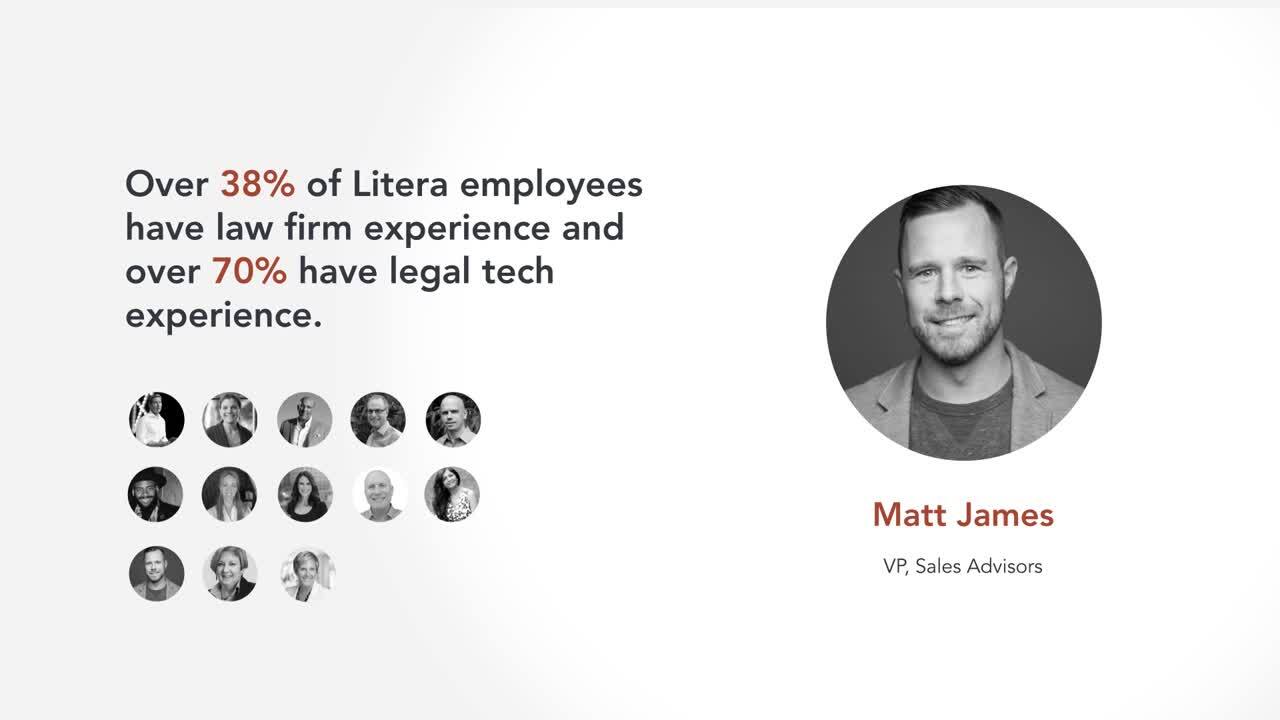We’re the Market Leader in Legal Technology, but Don’t Take Our Word for It
Hear from our customers about how we’re helping their firms Amplify Impact.
Explore Litera’s AI Legal Technology
We Amplify Impact Across Your Firm
For Legal Work. For Firm Performance. For Firm Governance.
Deliver Your Best Work On Time and On Budget
Work smarter, not harder. Elevate client service, supercharge your competitive edge, and nurture data-powered wisdom for effective decision-making.
Win More Business and Increase Profitability
Maximize billable hours by focusing on what truly matters–cultivating client relationships, not drowning in data entry. Respond to clients faster with valuable insights all while minimizing risks associated with privacy and cyber security.
Enhance End-User Satisfaction and Efficiency
Streamline contract review and document drafting for increased efficiency and accuracy so lawyers can do what lawyers do best—deliver high-value legal work to clients.
For Legal Minds, From Legal Minds
With technology crafted by legal experts, Litera is transforming the way legal teams of all sizes perfect documents, run deals, and manage cases.

Resources
Stay Up-to-Date With Our Latest Resources
From best practices and webinar recaps to expert insights and more, check out our latest resources.
Ready to Get Started?
Join over 4,000+ firms already growing with Litera.

